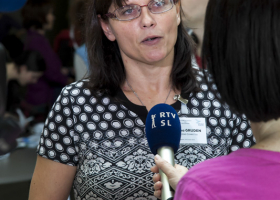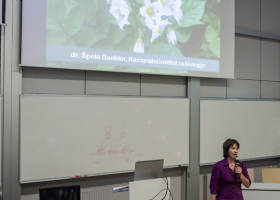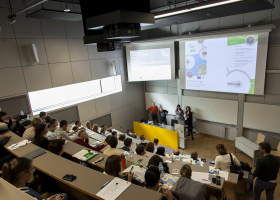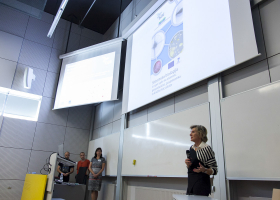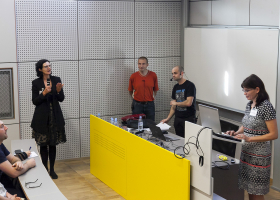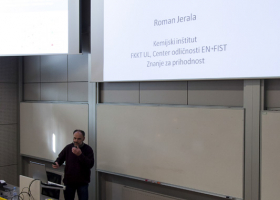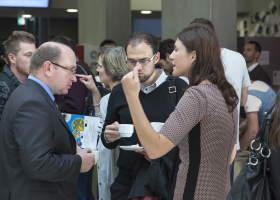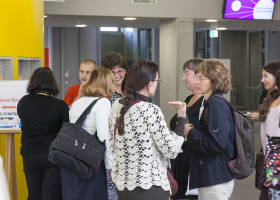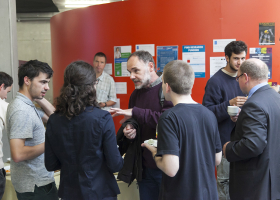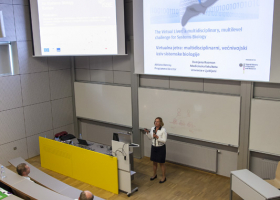20
Oct
Workshop Systems Biology and its impact on science, economy and society
New Faculty of Computer and Information Science hosted on Friday, October 17 2014 a workshop Systems Biology and its impact on science, economy and society. The workshop was organized by NIB in frame of the ISBE (Infrastructure for Systems Biology Europe). About hundreds participants from the governmental ministries, elementary and high schools, University of Ljubljana, institutes, pharmaceutical industry and media participated at the event.
The main topic of the workshop was to present systems biology as a new rapidly evolving discipline that seeks to determine how complex biological systems function by integrating experimentally derived information through mathematical and computing solutions and as a paradigm change to understand biology in future.
Its unique interdisciplinary character involves collaborations between molecular biologists, geneticists, chemists, physicists, mathematicians and computer scientists. System biology enables innovative collaborations and new approaches to previously intractable problems.

Systems biologists mainly orientate their research towards life sciences and health-related research. However, other applied areas (energy, environment, food production) are also addressed by systems biologists. The overarching profit in bringing system biology to full fruition is the enabling of informed decision-making in complex biological matters, whether for health, plants and animals, the environment, food safety, and their interconnections.
Systems biology has been already part of the Slovenian science. At the workshop Slovenian scientists Prof. Dr. Damjana Rozman and Assist. Prof. ddr. Jure Ačimovič from the Institute of Biochemistry, Medical Faculty, Ul; Prof. Aleš Belič from the Faculty of Electrical Engineering, UL, and Lek d.d.; and Prof. dr. Kristina Gruden and Dr. Špela Baebler from NIB shared their experiences on systems biology. In addition Prof. Dr. Roman Jerala from the Institute of Chemistry demonstrated the field of synthetic biology and its relations with systems biology.






